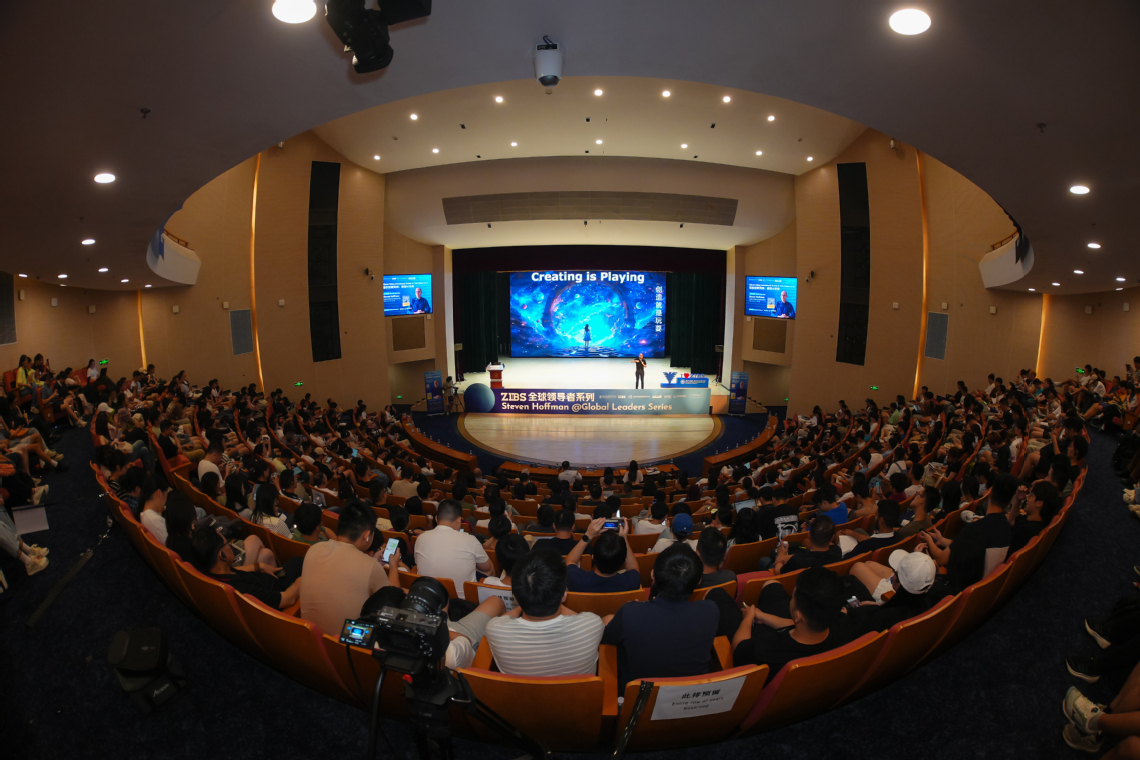On September 11, ZIBS Global Leaders Series was held in the Academic Auditorium, International Campus of Zhejiang University. Steven Hoffman, famous venture investor, startup mentor, and author of Making Elephants Fly, delivered a speech on 'Silicon Valley Investment Trends: Decoding the Future of AI,' offering a cross-disciplinary perspective on AI and investment trends in Silicon Valley.
In his opening remarks, ZIBS Dean BEN Shenglin noted that the ZIBS Global Leaders Series aims to invite prominent leaders from around the world to share their unique perspectives and offer new approaches to the audience. He emphasized that Steven Hoffman's talk not only marks an exciting start to the new semester but also provides a deep dive into AI and innovation.
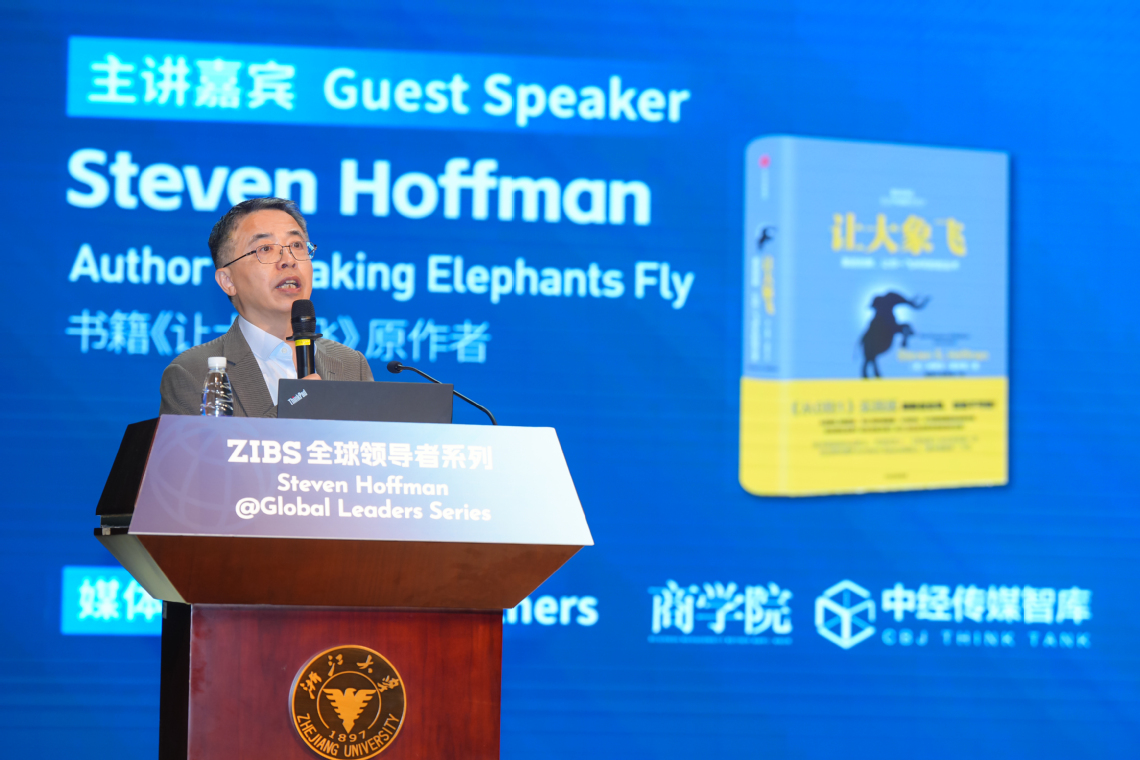
During his keynote, Hoffman emphasized the pivotal role AI plays across industries, underscoring that understanding and leveraging AI is crucial for enhancing both efficiency and creativity in the workplace. He clarified that AI is not intended to replace humans but to serve as a tool that boosts productivity and creativity. Hoffman illustrated AI's transformative potential with examples from game development and film production, showcasing how AI is shaping the future of content creation.

Hoffman also introduced leading companies like Luma Labs and projects such as the Unity AI engine, highlighting the potential of AI technologies in areas such as image transformation and virtual reality creation. He went on to explore the profound impact AI will have on future human-robot interactions, particularly the role humanoid robots may play in daily life and their evolving relationship with humans in the workforce. Looking ahead, Steven Hoffman explored the future trajectory of AI development, discussing areas like neural interfaces and how AI could potentially reshape our way of life.
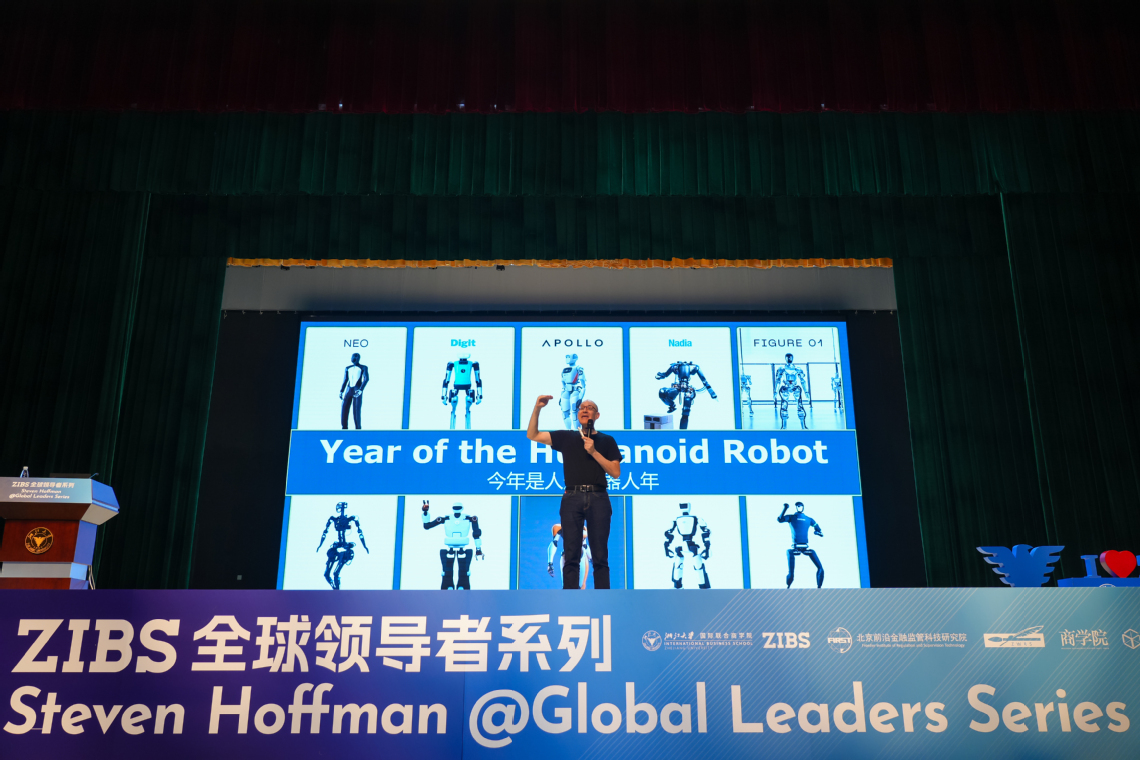

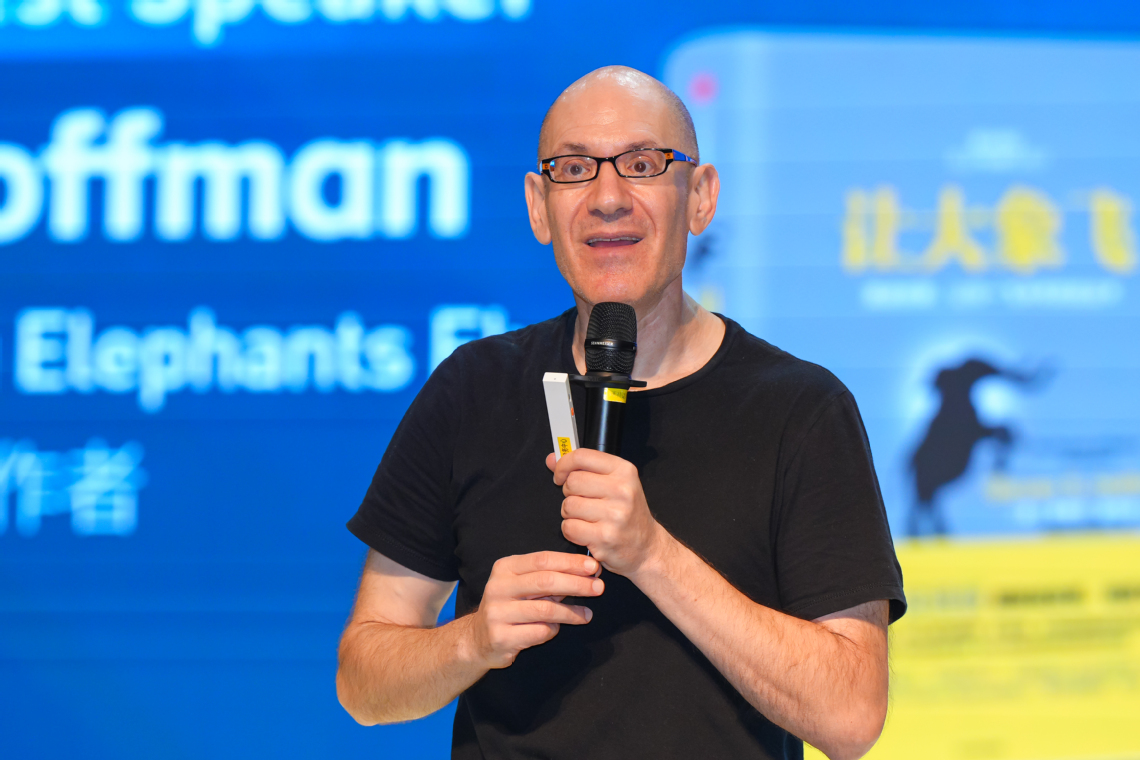
At the end of the lecture, faculty and students actively exchanged with Steven Hoffman on the Q&A session.
Regarding how students can maintain competitiveness in the future of AI, Steven Hoffman stated that students should not rely solely on traditional teaching methods such as lectures to learn about AI; instead, they should learn AI through using it. Also, problem solving skill and mind practice are key.
When discussing small language models (SLMs), Steven Hoffman pointed out that although large language models (LLMs) like ChatGPT envolves fast, progress in text production area is slowing down. In contrast, developments in image and video fields are more prominent. Previously, the belief was that bigger models were better, but now companies like Google are moving towards developing more agile small language models that perform better in specific application scenarios.
During the final part of the Q&A session, Philip T. Krein, Founding Executive Dean of ZJUI, gave a concluding remark where he mentioned the existing challenges of balancing software and hardware development and innovation. Steven Hoffman responded by noting that while Silicon Valley is renowned for its achievements in the software sector, China has demonstrated strong competitiveness in areas of hardware innovation such as autonomous driving. With advancements in brain-computer interface technology and growing interest from capital in new technologies, the role of government will become increasingly important. He cited the electric vehicle industry as an example, highlighting the crucial role governments play in guiding and supporting the development of emerging technologies.
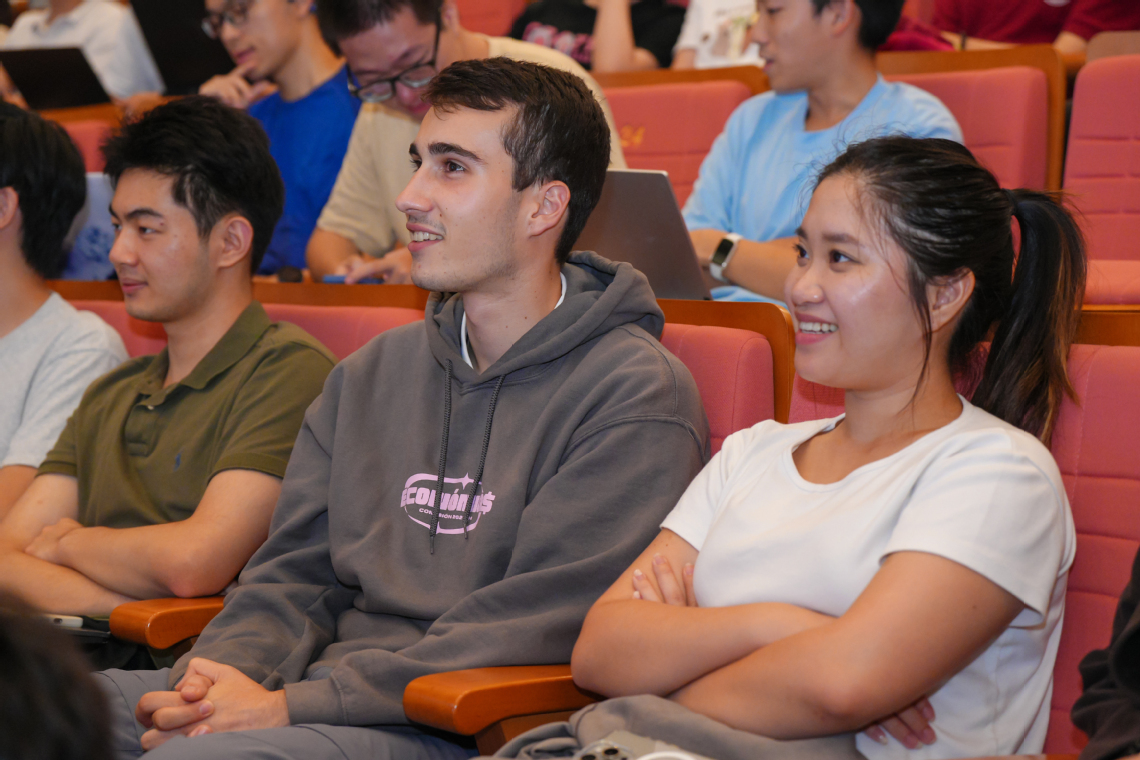
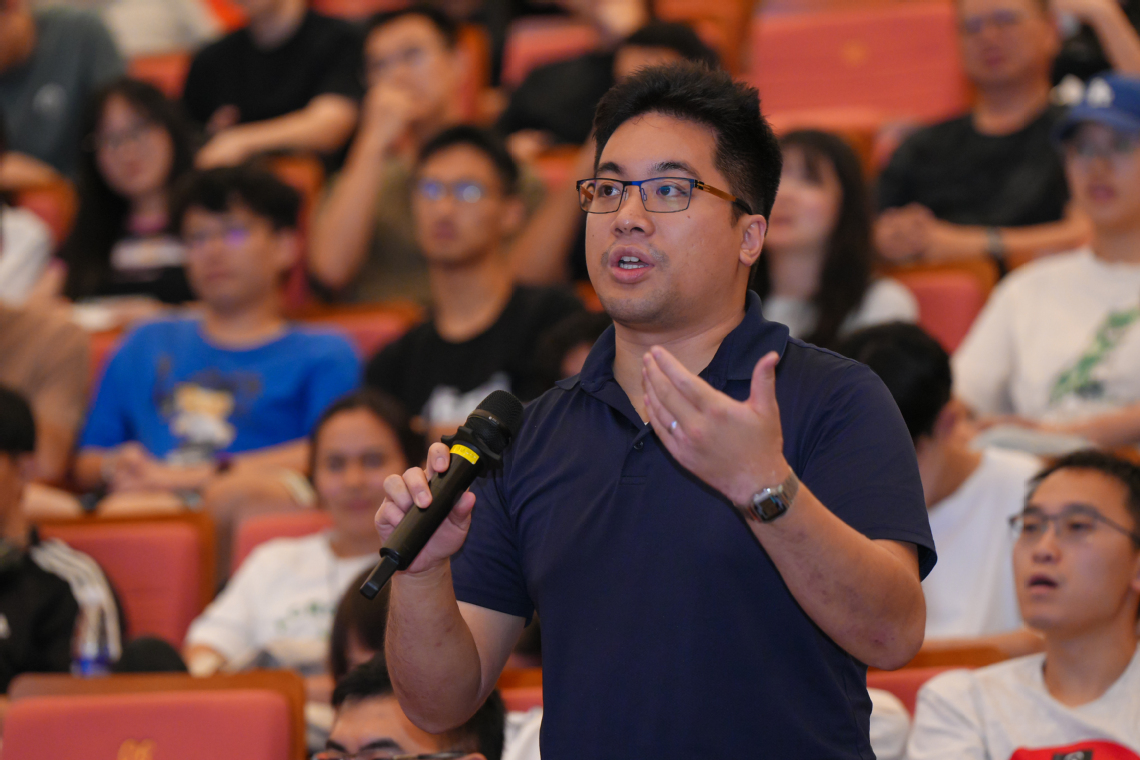
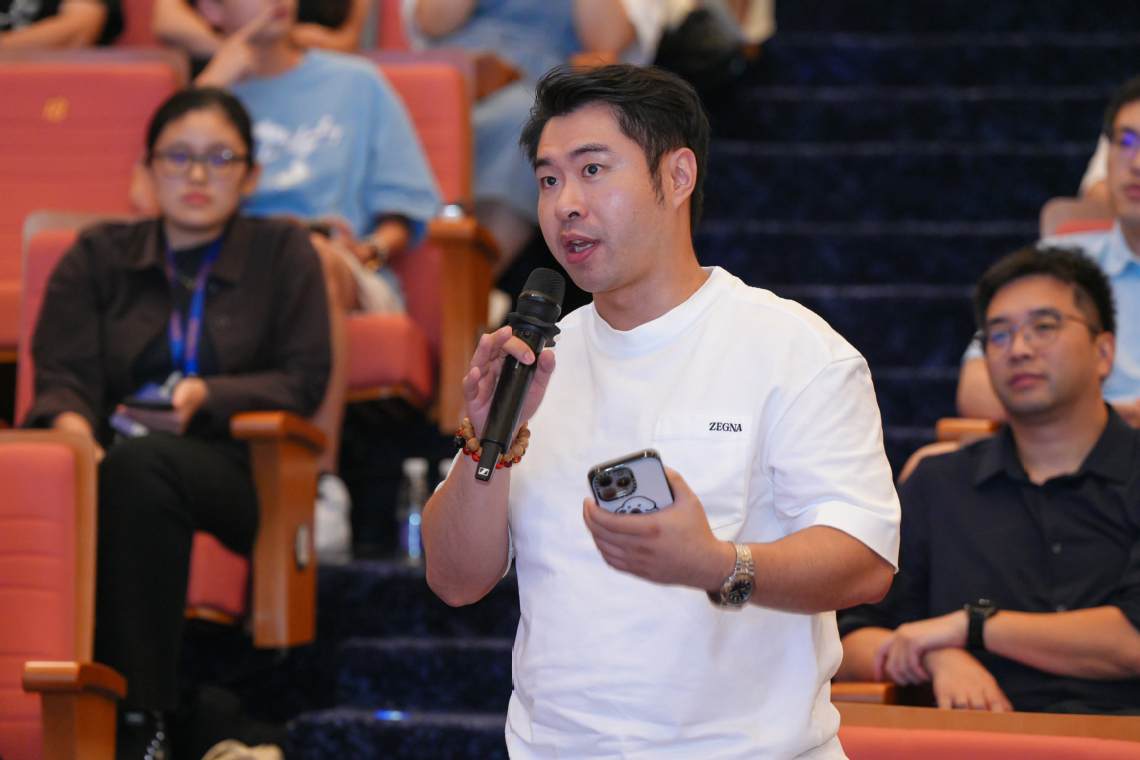
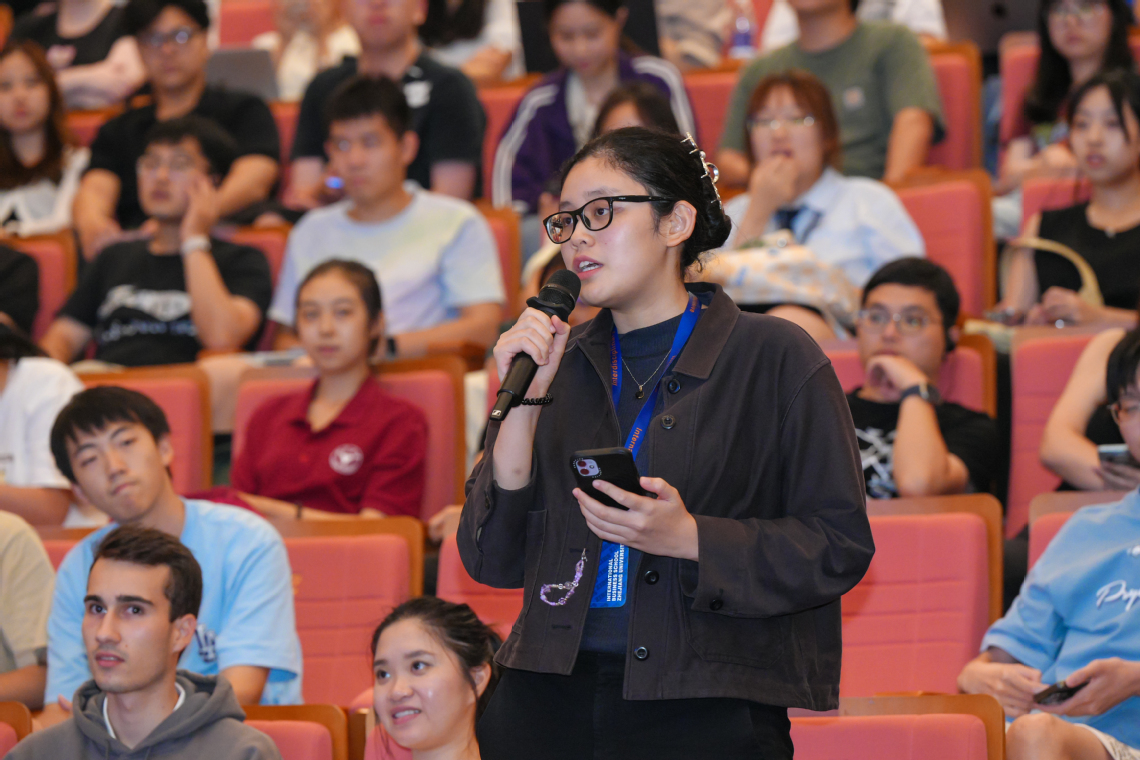
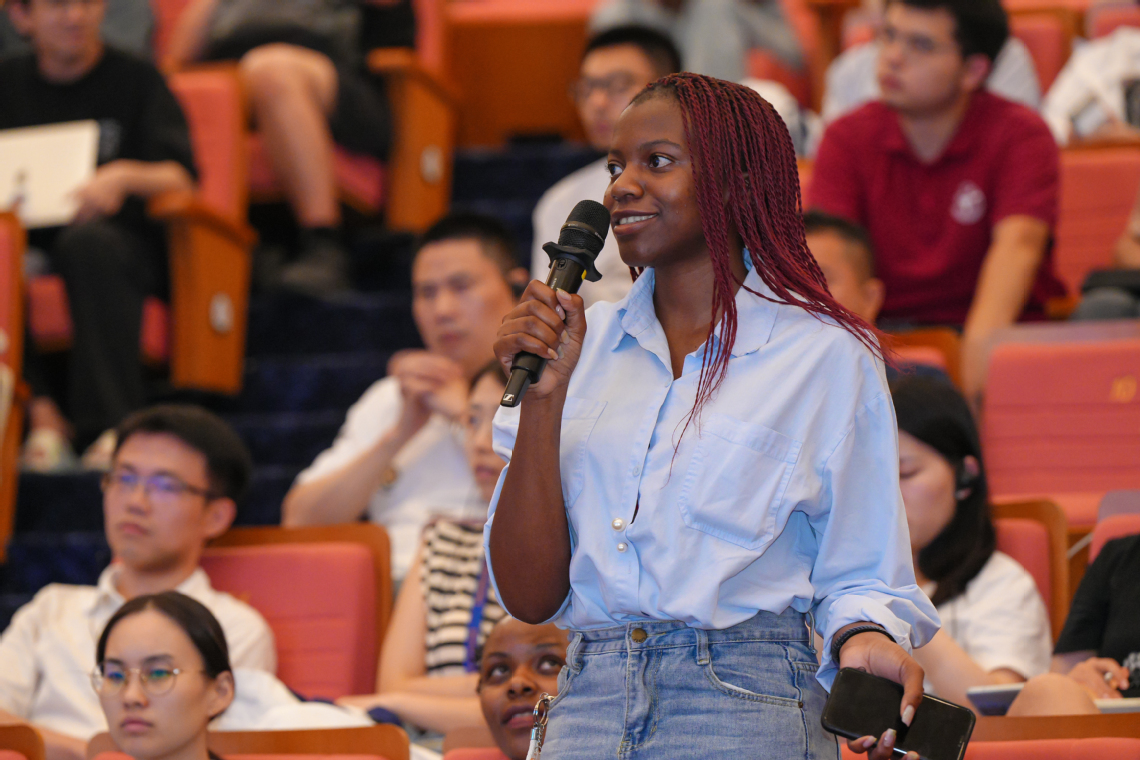
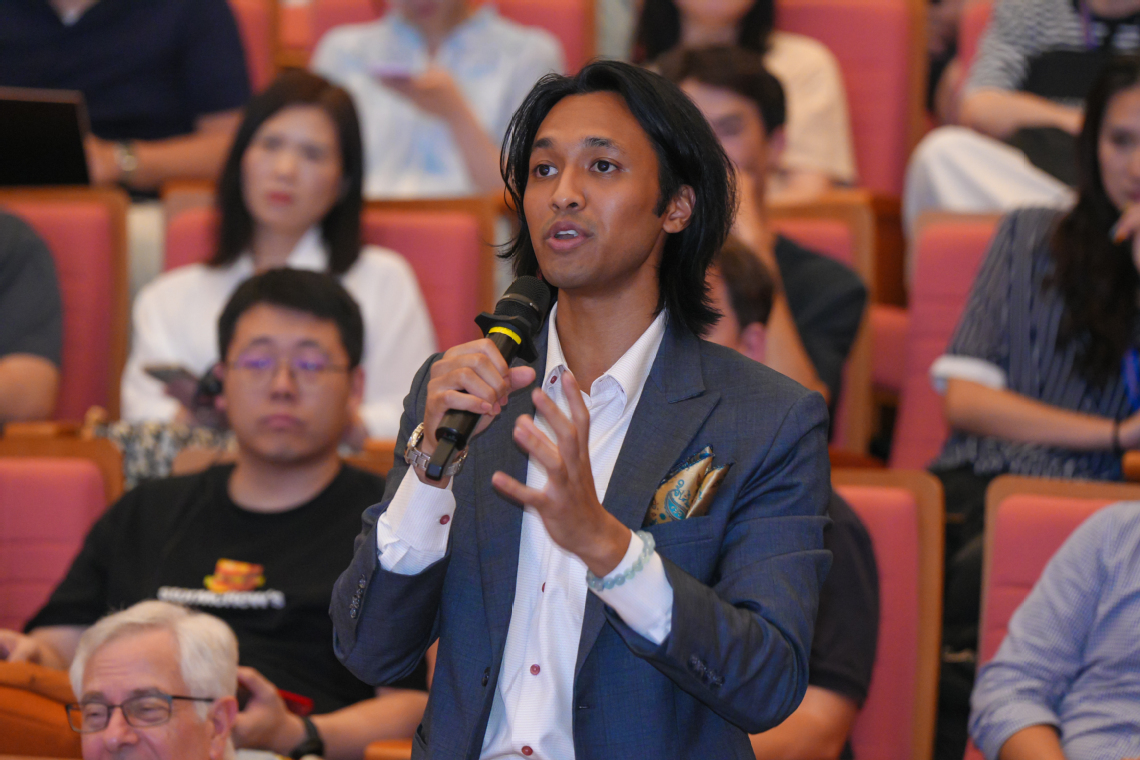
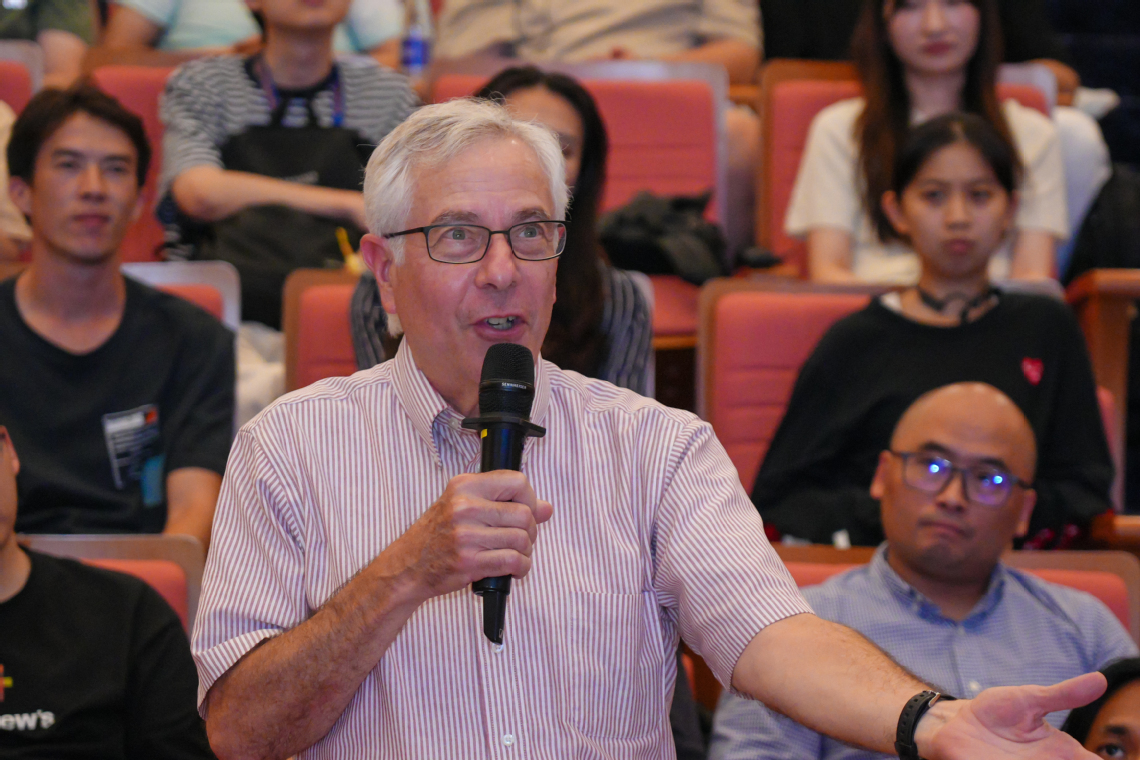
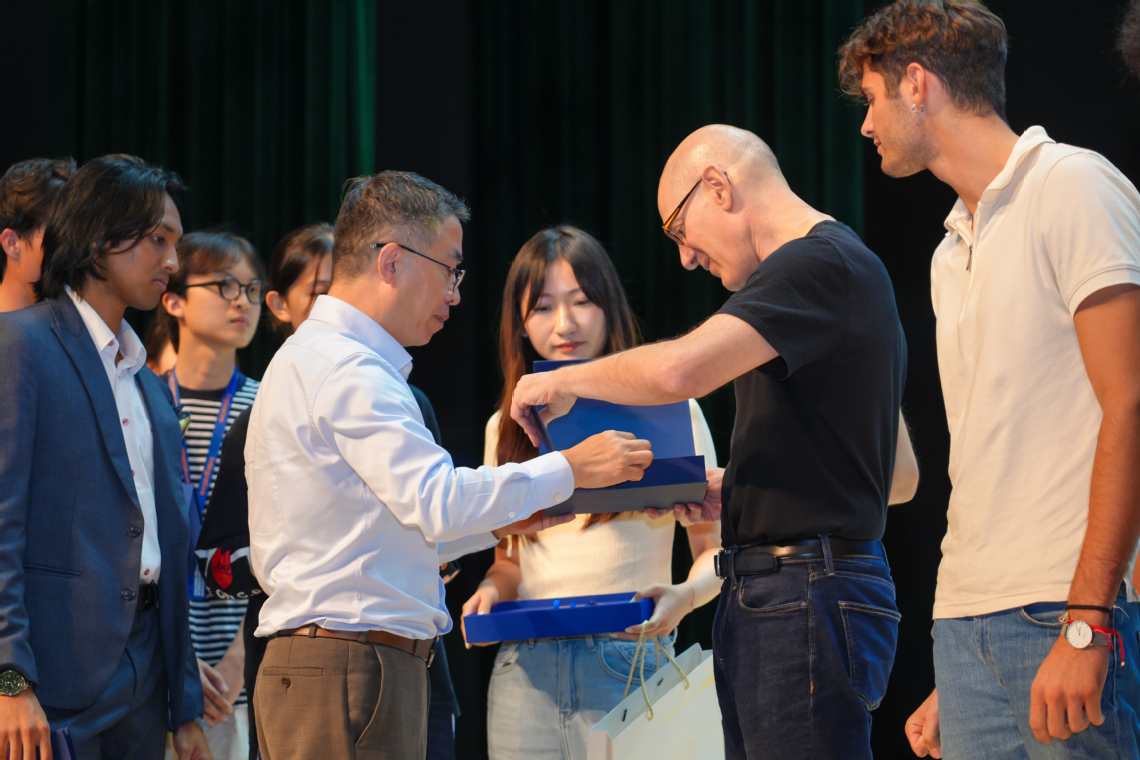
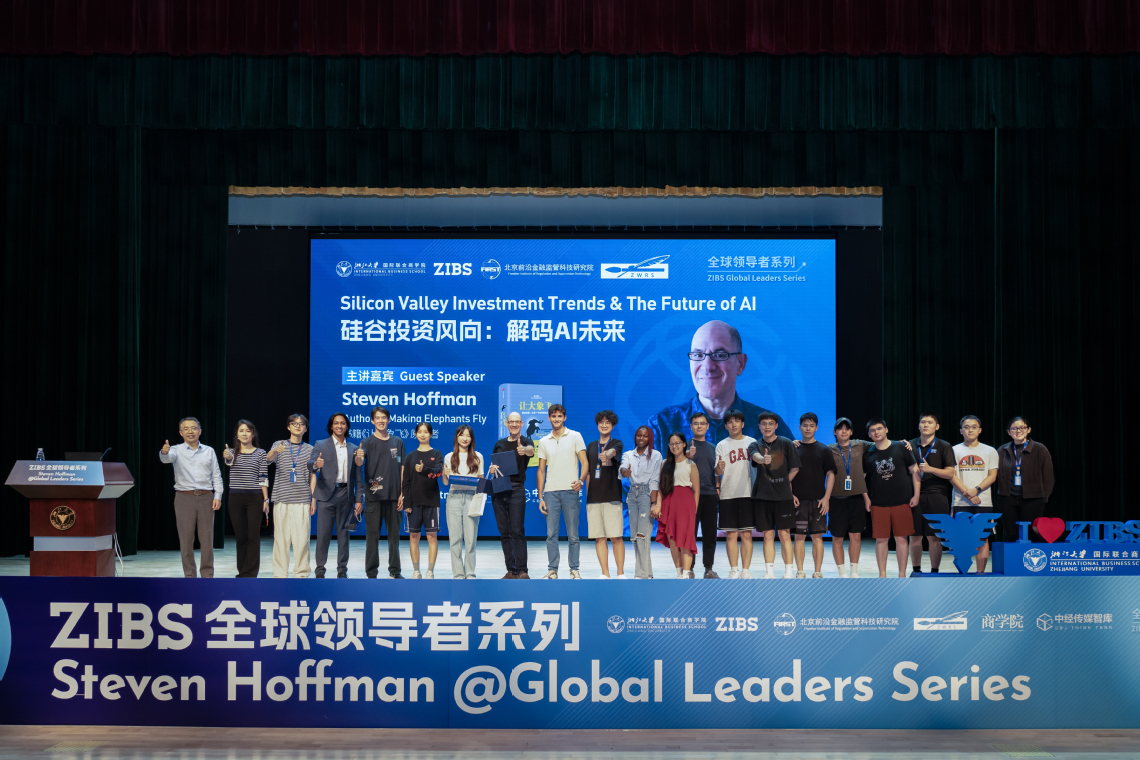
This event not only offered invaluable industry insights to students and faculty but also paved the way for exploring emerging technologies. Moving forward, ZIBS remains dedicated to creating platforms for direct dialogue with prominent leaders and top academics worldwide, empowering students to tackle future challenges and pursue their goals with confidence and motivation.
